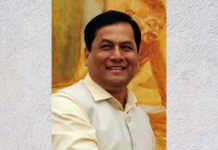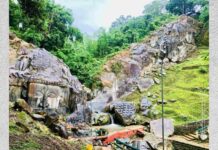The 4th of July is Rwanda Liberation Day because it commemorates the end of a period under a dictatorship and the beginning of liberation from oppression. It signifies the conclusion of a dictatorship and the beginning of a democratic regime. The date also commemorates the Rwandan Patriotic Front’s liberation of the country and the end of the Tutsi Genocide of 1994. Locals refer to the day as “Kwibohora.”
The background of Rwanda Liberation Day
As a consequence of Rwanda’s loyalty to the Belgian administration during World War II, numerous Rwandans were educated and trained to work in administrative capacities. Nonetheless, an increasing number of people desired independence from their colonial masters. Rwanda was taken over by the Hutu majority in 1959, following a rebellion against the Tutsi minority. Hundreds of thousands of Tutsi refugees fled to Uganda, where they initiated preparations for an invasion to overthrow the Hutu government.
Rwanda attained independence in 1962 and instituted numerous political reforms, including universal suffrage and free elections. Nonetheless, violence between the majority Hutu and minority Tutsi persisted. A group of Tutsis unsuccessfully attempted to overthrow the government in 1967. A former army officer named Juvénal Habyarimana usurped power in 1973 and banned political opposition by establishing a one-party state.
Rwanda was liberated from the grip of a corrupt dictatorship on July 4, 1994. In the early 1990s, the country’s first democratically elected president put an end to the genocide that had plagued the nation for years. Since the formation of a new government, the nation has experienced numerous changes, including economic expansion.
Independence From Meat Day 2023: Date, History, Facts about Vegetarianism
Caribbean Community Day 2023: Date, History, Facts about Caribbean
Filipino-American Friendship Day 2023: Date, History, Facts about Philippines
5 INTERESTING FACTS ABOUT RWANDA
A customs officer will examine your cargo upon entry and request that you remove any plastic bags that may be present.
Rwanda recognises French, English, Kinyarwanda, and Kiswahili as its official languages.
Rwanda’s average population density is approximately 525 persons per square kilometre.
Rwanda is mountainous, with an average elevation of 0.82 kilometres.
Rwanda’s parliament has the highest proportion of women in the globe, with more than 60 percent of its members being female.
RWANDA LIBERATION DAY DATES
| Year | Date | Day |
|---|---|---|
| 2023 | July 4 | Tuesday |
| 2024 | July 4 | Thursday |
| 2025 | July 4 | Friday |
| 2026 | July 4 | Saturday |
| 2027 | July 4 | Sunday |




